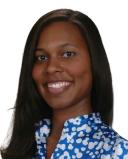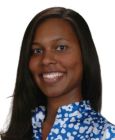
Education
What Do Doctors Learn About Disability?
Despite their training, doctors have a lot to learn about disability.
Posted August 21, 2020 Reviewed by Devon Frye
I've learned more about disability rights, culture, and disparities affecting the disabled community from teenagers and Twitter than I ever did in medical school.
I'm a physician. I have several advanced degrees. I've spent countless hours in hospitals and clinics. Still, not once in my 18-year journey to becoming a pediatric neurologist was I required to take a course on disability. One in five Americans—over 53 million people—have some form of disability. Doctors, no matter their specialty, will encounter and care for disabled and chronically ill patients. Still, most aren't required to know much of anything about disability rights or history. Why is that?
Medical education is rigorous and regimented at all levels. Young doctors-to-be are required to take certain science and mathematics courses before they can even apply to medical school. Medical schools and residency programs are required to educate trainees on topics ranging from anatomy and physiology to pharmacology and public health. Despite the fact that trainees spend thousands of hours learning about disorders and disease, most receive little information about general disability issues. Some schools have lectures on disability-focused topics like the Americans with Disabilities Act during electives or history of medicine courses. However, as is often the case with other topics that aren't deemed to be "High Yield" (information that trainees must know in order to pass board exams), the material is glossed over or trainees learn it for a test but soon forget about it.
I didn't know how much I didn't know about disability until I decided to go into pediatric neurology. I fell in love with neurology during medical school. I was especially fascinated by the changes that the brain goes through as a child grows (and how those changes are affected by genetic, structural, and environmental factors.) Now, I work with patients with intellectual and neurodevelopmental disabilities (IDD). As a resident, I knew that I wanted to learn as much as I could about autism and other IDD, especially since I'm not autistic myself. I'm a cancer and stroke survivor (and identify as disabled myself) and I know how much there is to learn from a disabled patient's personal experiences. I decided to participate in the "Leadership Education in Neurodevelopmental and Related Disabilities" program, a multidisciplinary program that allows healthcare trainees to learn about disability alongside and from disabled advocates.
This is where I first heard lectures on accessibility, the neurodiversity movement, Disability Pride, the Olmstead Decision and so much more. Some of the younger advocates were active on social media and encouraged me to get involved. Thanks to Twitter, I was introduced to activists like Alice Wong and organizations like the Autistic Self Advocacy Network, found a host of articles and books by disabled scholars, and heard an untold number of anecdotes about daily life as a disabled person. Sadly, many of those stories were about ableism. And far too often, this ableism came from the healthcare system.
Disabled and chronically ill people are talking about the healthcare system. And most of what they're saying isn't good. Hashtags like #AbledsAreWeird and #DoctorsAreDickheads are full of stories of everything from casual ableism to medical gaslighting to complete mismanagement at the hands of healthcare providers. Disabled patients are sharing their stories and they're using social media to do it. These stories have inspired me to learn even more about disability issues. Judging by my timeline, these stories are also inspiring other young doctors and medical students to seek out information on disability rights and history. But shouldn’t they receive at least some of that education during their medical training?
It isn't enough to give medical students and trainees a few random lectures and hope that they figure things out. I believe that formal education on not only pathology and medical models of disability but also accessibility, disability rights, and other issues could only benefit our trainees. This information should be integrated into and to complement medical curricula for trainees at all levels. As pediatric residents learn about language development, they could learn about assistive and augmentative communication. As medical students learn about neuroanatomy, they could learn about neurodiversity and self-advocacy. With each discussion about pathology, instructors could discuss ableism and its real-world effects. Medical schools could work with disability scholars to develop these curricula.
I have to believe that this kind of education would help our trainees be better doctors. I want to believe that they would be more inclined to listen to their patients, to take their experiences as disabled people seriously. That's the goal of medical education, isn't it? To produce good doctors who take good care of their patients? And for those patients to have good health outcomes? Who knows what my career would look like if not for the LEND program, for disabled advocates, and for Twitter (of all things.) I can only hope that all of this is helping to make me a better physician too.

